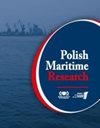未来可持续的海事部门:提高20年以上渔船的能效和减少环境影响第二部分
IF 2
3区 工程技术
Q2 ENGINEERING, MARINE
引用次数: 3
摘要
摘要为了使海事部门可持续发展并拥有完整的蓝色经济,船东应准备好在实施能效项目的同时实施船舶能效管理计划。强调了拥有20年以上捕鱼船的组织和船东面临的问题,决策当局面临以下挑战。为了在未来十年内使此类船舶保持在船队中,船东应部署用于海洋系统改造的能源效率项目,以提高能源效率并满足环境法规。进行能源审计,并提出能源效率计划,以及目前生效的法规指南。为了提高能源效率、减少环境影响和降低燃料消耗成本,在特定情况下,对船舶系统进行了改造,并提出了两种选择。第一种是含有碳氢化合物和二氧化碳的级联制冷系统,船东的能效提高了约20%。第二种选择是使用铵作为环保制冷剂的两级制冷系统,这将能源效率提高约26%。已经讨论了技术和经济问题。本文章由计算机程序翻译,如有差异,请以英文原文为准。
Future Sustainable Maritime Sector: Energy Efficiency Improvement and Environmental Impact Reduction for Fishing Carriers Older than 20 Years in the Fleet Part II
Abstract For the maritime sector to be sustainable and to have an intact blue economy, shipowners should be ready to implement Ship Energy Efficiency Management Plans alongside energy efficiency projects. The problem for organizations and shipowners having fishing carriers older than 20 years is highlighted and the following challenges arise for decision-making authorities. To keep such ships in the fleet for the next decade, shipowners should deploy energy efficiency projects for marine system retrofitting to improve energy efficiency and meet environmental regulations. An energy audit is performed and an energy efficiency program is proposed with guidelines for regulations that are currently coming into force. To improve energy efficiency, reduce the environmental impact, and cut fuel consumption costs, marine system retrofitting is done, in a particular case, with two options proposed. The first is a cascade refrigeration system with hydrocarbons and carbon dioxide, where the shipowner gains an energy efficiency improvement of about 20%. The second option is a two-stage refrigeration system with ammonium as the environmentally friendly refrigerant, which improves the energy efficiency by about 26%. Technical and economic issues have been discussed.
求助全文
通过发布文献求助,成功后即可免费获取论文全文。
去求助
来源期刊

Polish Maritime Research
工程技术-工程:海洋
CiteScore
3.70
自引率
45.00%
发文量
20
审稿时长
>12 weeks
期刊介绍:
The scope of the journal covers selected issues related to all phases of product lifecycle and corresponding technologies for offshore floating and fixed structures and their components.
All researchers are invited to submit their original papers for peer review and publications related to methods of the design; production and manufacturing; maintenance and operational processes of such technical items as:
all types of vessels and their equipment,
fixed and floating offshore units and their components,
autonomous underwater vehicle (AUV) and remotely operated vehicle (ROV).
We welcome submissions from these fields in the following technical topics:
ship hydrodynamics: buoyancy and stability; ship resistance and propulsion, etc.,
structural integrity of ship and offshore unit structures: materials; welding; fatigue and fracture, etc.,
marine equipment: ship and offshore unit power plants: overboarding equipment; etc.
 求助内容:
求助内容: 应助结果提醒方式:
应助结果提醒方式:


